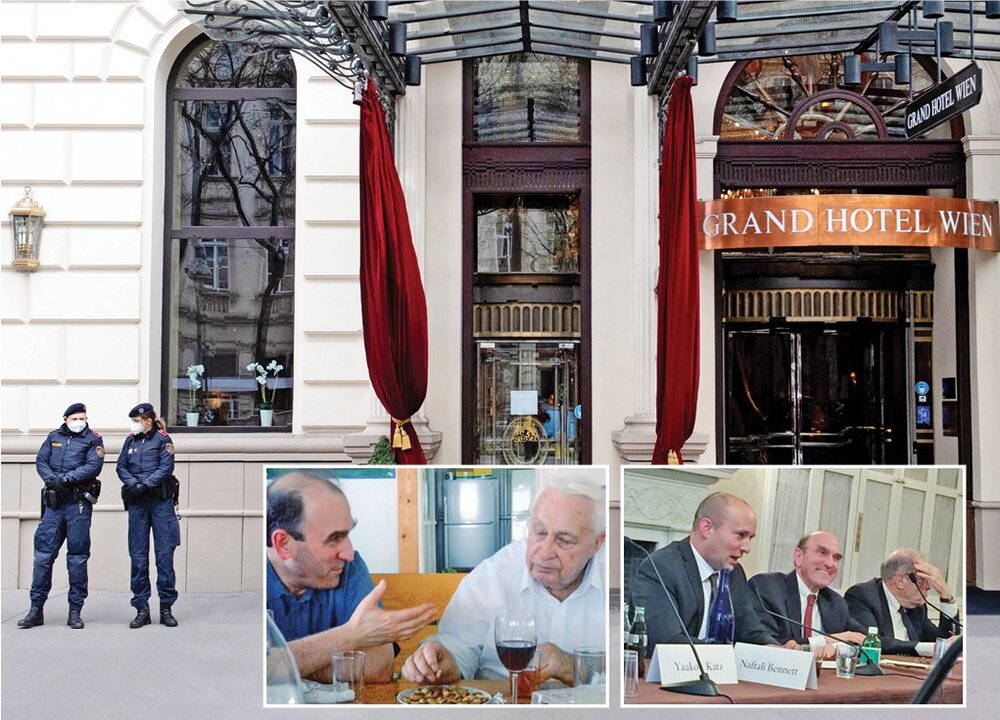Group on Iran Policy
By Ali A. Jenabzadeh

TEHRAN – With the new Iranian government of Ayatollah Seyed Ebrahim Raisi taking the reins in Tehran, the resumption of the stalled Vienna nuclear talks on reviving the tattered 2015 Iran nuclear deal has become only a matter of time. But will the next round of talks yield results?
The answer to this question increasingly seems to depend more on the outcome of Washington’s Iran deliberations than what might come out of the next round.
After a months-long lull in the Vienna nuclear talks, Iran’s new foreign minister, Hossein Amir Abdollahian, made remarks last week on Monday night that quickly grabbed the attention of Europe’s diplomatic circles. In a televised interview with Iran’s state TV, Abdollahian said that it would take 2-3 months for the new Iranian government to be fully established, suggesting that the next round of Vienna talks would be decided on after this period.
The remarks set off alarm bells among the Europeans, prompting them to seize the opportunity of the start of Abdollahian’s job as foreign minister to convince Iran into resuming the Vienna talks as soon as possible. In a phone conversation, German Foreign Minister Heiko Maas told his Iranian counterpart that the talks over the Iran nuclear deal, formally known as the Joint Comprehensive Plan of Action (JCPOA), should be resumed as soon as possible. In an earlier conversation, the French foreign minister, Jean-Yves Le Drian, had conveyed a somewhat similar message.
As things stand, the Vienna talks will resume in the near future. Abdollahian told Le Drian straightforwardly that “Iran will participate in talks that will produce tangible results and fulfill the rights and interests of the Iranian people.”
But will the next round produce positive results? Deliberations in Washington regarding the JCPOA bode ill for the talks.
The U.S. special envoy for Iran, Rob Malley, has been in touch with a vague, secret team of former Trump officials and Iran experts at conservative think tanks. Over the past months, the Europeans, whose inaction over the JCPOA has deeply frustrated Iran, have mounted diplomatic pressure on Iran to “return to the negotiations in Vienna with a view to bringing them to a swift conclusion.”
But while the Europeans have been pressuring Iran, the Biden administration was busy working hand in glove with a number of Iran hawks in Washington to set out a plan to destroy the Vienna talks in case they are resumed.
The U.S. special envoy for Iran, Rob Malley, has been in touch with a vague, secret team of former Trump officials and Iran experts at conservative think tanks. The hush-hush team, known among its members as “Group on Iran Policy,” includes Trump Iran envoy Eliot Abrams, former diplomat and Distinguished Fellow at the Washington Institute for Near East Policy Deniss Ross, and managing director at the Washington Institute Michael Singh, the Tehran Times can reveal.
According to documents seen by the Tehran Times, the group’s existence and meetings as well as discussions were meant to be secret and off the record, even though many other Iran hawks such as Ray Takeyh, Hasib J. Sabbagh senior fellow for Middle East studies at the Council on Foreign Relations (CFR), and Mark Dubowitz, CEO of the Foundation for Defense of Democracies, were already in the know about the formation of the group.
The “advisory” group is the latest effort by the Biden administration to build up a bipartisan policy on Iran in a seemingly polarized political environment. It also disillusionizes those believing that the Biden administration is different from the previous one. When Trump withdrew from the JCPOA in May 2018 many decided to believe that Republicans strongly oppose any nuclear deal with Iran.
In the meantime, a number of Republican figures such as Abrams, John Bolton, and Dubowitz reinforced this belief by supporting Trump’s decision to scupper the 2015 nuclear deal.
The “advisory” group is the latest effort by the Biden administration to build up a bipartisan policy on Iran in a seemingly polarized political environment. But the documents seen by the Tehran Times show a completely different thing. They indicate that Malley is seeking help from opponents of the JCPOA and staging propaganda operations against Iran in a multi-pronged strategy devised equally by Republicans and Democrats.
Interestingly, the group’s Republican and Democrat organizers insisted on the need to keep it informal so it does not fall under regulations that would require disclosures and record-keeping.
When it comes to Iran, the documents show, there is a division of labor; Republicans play the role of a bad cop while Democrats assume the role of a good cop. This begs the question: will the next round of the Vienna talks succeed in bridging the gaps between Iran and the U.S. on how to revive the JCPOA?
With Malley collaborating with the killers of the JCPOA, especially those who believe that he is often wrong on everything, one should be careful not to predict any breakthrough during the next round. In fact, there are already indications that the seventh round could be overshadowed by machinations of the scheming group. Concurrently with the inauguration of the Raisi administration, a suspect tribunal was set up in Sweden to deal with the alleged crimes of a former Iranian judiciary official accused of playing a role in mass executions in the 1980s.
Ali Vaez, International Crisis Group’s Iran Project Director, has recently spoken about the tribunal on Clubhouse. Many believe that this trial is intended to push the European Union into imposing sanctions against the new Iranian president for his alleged role in those executions, something that would weigh on Iran-EU relations at a time when they are already strained over the JCPOA hanging in the balance. Therefore, instead of putting pressure on Iran, the Europeans need to pay much closer attention to what their American allies do.
